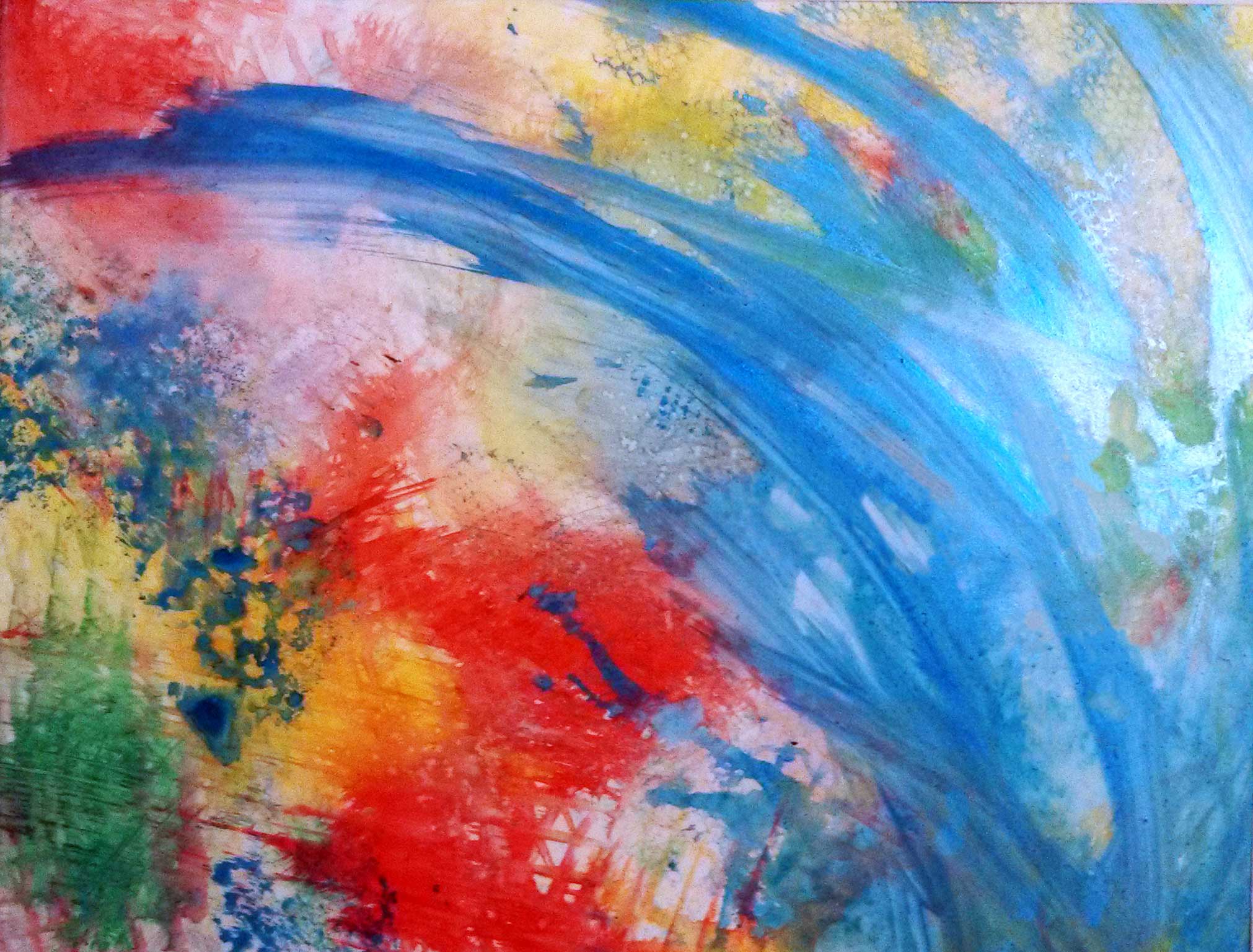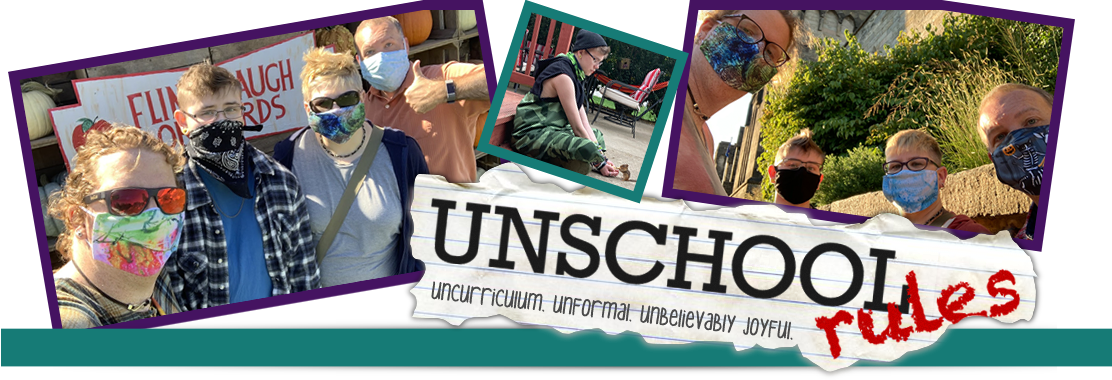
In our family, we don’t “do” subject areas. We don’t really do tests, quizzes, essays or worksheets.
We’re radical unschoolers, and we believe that learning happens all the time, and for us, it rarely happens in tightly defined areas like “social studies” and “grammar.”
That said, I get a lot of questions from people who are unfamiliar with unschooling and wonder, “But how do you teach math?” (Or any other subject!)
That’s why I agreed to take part in the iHomeschool Network’s “5 days of…” Hopscotch series this week, in which I’m joining a bunch of my fellow bloggers to share how we “teach” language arts, math, science, history and fine arts.
It’s a little bit of a trick… because I’m not going to talk about teaching at all.
Instead, I’m glad to share how we learn, radical unschooling, eighth-grade-ish daughter style!
If you wonder how our learning happens “beyond the curriculum,” read on. Today, we’re tackling the ways things traditionally known as social studies happen in our lives – unschooling history, geography and world cultures.
Unschooling and history
History is probably the most “co-curricular” thing we do.
That is, we really study history as the history “of” other things. Rather than a period-by-period approach, we are much more focused on topic-by-topic studies.
 When we visit a place, we learn about the history associated with it. When we see a movie about a particular period, we’re often motivated to dig deeper into that time. When someone famous catches Ashar’s eye, we learn more about their place in the past (or present)! Even video games – especially video games – provide a gateway into different times.
When we visit a place, we learn about the history associated with it. When we see a movie about a particular period, we’re often motivated to dig deeper into that time. When someone famous catches Ashar’s eye, we learn more about their place in the past (or present)! Even video games – especially video games – provide a gateway into different times.
And particularly with science and math, “history” really becomes the gateway to a ton of discussions about how things were discovered, and when, and why.
Let me start today by giving you a sampling of the ways we’ve engaged with history for you to check out. Don’t forget to come back here afterward, though, because I hope I can explain how we tie these various threads together!
- Cowboys and Indians of the Wild West
- Tons and tons about the Titanic
- Native American Olympic athlete Jim Thorpe
- Philadelphia and its role in the American Revolution
- The history of space travel, especially moon exploration
- Mythology and its roots in ancient Greece, Rome and Egypt
- Even our interest in chemistry really started out as a study of its history in alchemy!
 So how do we come up with a coherent picture of the world’s past through these various explorations?
So how do we come up with a coherent picture of the world’s past through these various explorations?
Well, a couple ways. First of all, let me start by saying that we have gaps. It’s only this year that Ashar became at all aware of what the Holocaust was, and there was a really embarrassing moment last fall when Ashar told a history-major friend of mine that the Confederates won the American Revolution. So… it’s a work in progress.
For our part, though, we have been trying to give “a sense of it all” by adding some of these things we study to our giant timeline. We’re not 100% at this by far, but having this hanging in our kitchen, and adding to it here and there, has really helped tie things together.
We’re also just conscious about talking about when things happen. For instance, when we visited Washington, D.C., in the summer of 2012, it was good to be able to explain that Martin Luther King Jr. delivered the “I Have a Dream” speech on the steps of the Lincoln Memorial, because Lincoln had lived and died almost 100 years earlier and his monument was already built!
That sounds obvious, maybe, but it was a way to put a proportion of space and time between those two events in a way that was very real to Ashar.
For us, history is a vast area to explore. We could provide an overview, and we certainly do try to strew experiences and conversations and books and movies that might help fill in the gaps, but at the same time, it’s been a huge benefit for us to dive deep into the times that most catch Ashar’s attention, and to fill in with breadth as we can.
My own experience was the opposite – years and years of “surveys” with no depth – and unfortunately it’s been a lot harder for me to fill that in as an adult!
Unschooling and geography
This is probably as much of an interest of Ashar’s as history. He is fascinated by where things are in the world, and by various places!
 Our humongous map of the world is really our biggest tool here. Almost any place we hear about, we find on the bedside map.
Our humongous map of the world is really our biggest tool here. Almost any place we hear about, we find on the bedside map.
At one point, Ashar actually wanted to go into cartography as a career, and he still mentions that at times. Maps have always fascinated him, and we can sit for hours looking at ours and talking about things that happened in various places.
One of the most fun things we’ve done in homeschooling was when he and Chris discovered an old geography textbook and shared their thoughts about how perceptions have changed since 1920!
Unschooling and world cultures
Related to both geography and world cultures is one project that originally Chris started – family participation in the PostCrossing postcard-exchange project. You can read more about his experiences with it on his blog, Papergreat.
Originally, he started sending and receiving postcards worldwide, but he later created an account for Ashar and now he is participating too! It’s been a great way to receive notes from people around the world and find out what their daily life is like – AND it turns into a neat geography study!
We also find that fine arts play a big part of how we explore world cultures – music, dance, movies, language, etc. I’m going to talk more about this in the final installment of this subject-by-subject series; I hope you’ll check back for it!
The rest of the series
Monday: The power of words: Unschooling and “language arts”
Tuesday: It’s not all about numbers: Unschooling and “math”
Wednesday: Exploring the world and how it works: Unschooling and “science”
Today: You can’t escape the past: Unschooling and “history”
Friday: There’s beauty in everything: Unschooling and “fine arts”
More five-day fun
This post is part of the iHomeschool Network’s January 2014 “5 days of…” Hopscotch series.
 You can see how some of my fellow bloggers are spending their five days here.
You can see how some of my fellow bloggers are spending their five days here.
Many of us are sharing on how we teach or learn in these subject areas, from a variety of styles and perspectives! We sure are an eclectic group – I hope you’ll check out more!
And if you’re into the things we do in our radical unschooling family, check out my two previous “5 days of…” series, 5 days of real-world math and 5 days of video-game learning.
Finally, this post is part of the How to Teach Without a Curriculum linkup through the iHomeschool Network. I hope you’ll check it out to read more posts on teaching without formal curriculum!
More great history resources
 This post is part of the iHomeschool Network Massive Guide to Homeschooling History.
This post is part of the iHomeschool Network Massive Guide to Homeschooling History.
Make sure to check it out for tons of other great history resources, including links to a dozen more Unschool Rules posts!





